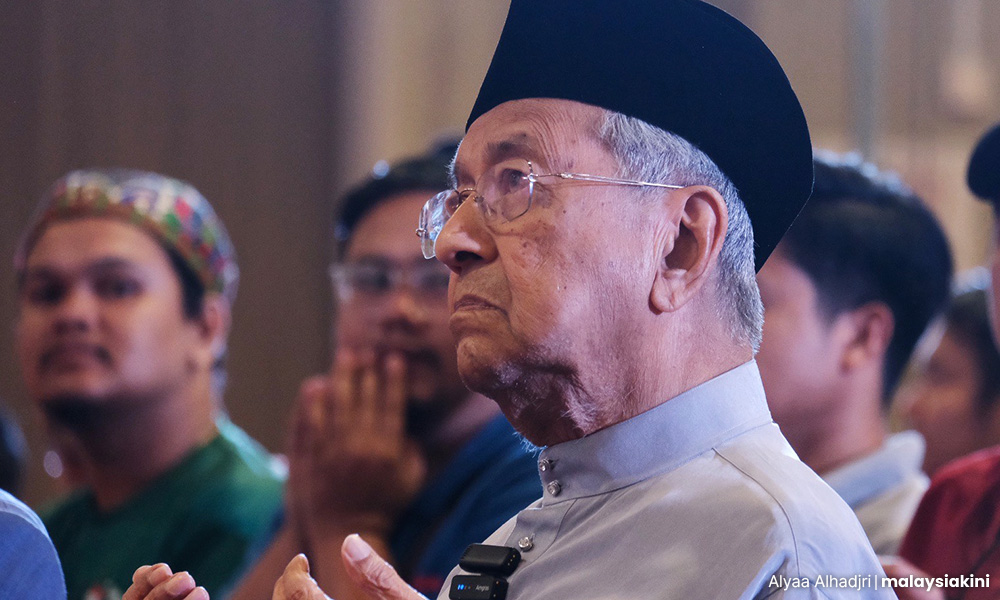
I had no choice in Renong acquisition meetings with Dr M - businessperson
Halim Saad contended he was not given “any option or choice” in meetings with then prime minister Dr Mahahthir Mohamad that allegedly led to the businessperson being forced to relinquish his controlling stake in Renong Bhd in 2001.
In the plaintiff’s reply to Mahathir’s statement of defence against his lawsuit, Halim maintained his version of events of being compelled by the then prime minister and two others to accede to the sale of his stake.
The other two co-defendants targeted by the civil action are former finance minister II Nor Mohamed Yakcop and the federal government.
“The plaintiff was not given any option or choice in his meetings with Mahathir and Nor Mohamed from about July 12, 2001 to July 17, 2001,” Halim claimed.
In his reply filed at the Kuala Lumpur High Court on Oct 30, the plaintiff maintained he “did not agree to the compulsory acquisition of his vested interest and the deprivation of his rights as a controlling shareholder in Renong”.
Through their statement of defence against Halim’s lawsuit for compensation, Mahathir and the other two defendants contended that the plaintiff was never forced to relinquish his controlling stake in the troubled company.
The trio claimed, among others, that Halim himself agreed to execute the general offer over the entire shareholdings and that the plaintiff was duly compensated with RM165 million.
In the reply, Halim further maintained that the RM165 million was insufficient compensation as the RM100 million portion was for his having previously paid RM100 million to UEM Malaysia Bhd for a related Put Option.
He alleged the Put Option had then lapsed due to a purported request by the government for him and UEM to let it lapse.
Halim claimed that the RM165 million was not actually to compensate him for relinquishing shareholdings because it was instead to help him deal with losses he incurred due to the foreclosure of his various assets to multiple financiers to finance the RM100 million portion.
The plaintiff claimed this was proven by his letter dated May 13, 2003, to Khazanah Nasional Bhd.
‘Renong at the top back then’
Previously, Halim claimed in his lawsuit that Mahathir, directly and through Nor Mohamed, directed the plaintiff not to proceed with an initially intended and related general offer, due to the government allegedly wanting instead to acquire all the shares in UEM through a designated entity, Khazanah, or a party it was to nominate.

“The government had not in any way paid any compensation to the plaintiff. The payment of RM165 million was made by Khazanah as compensation to the plaintiff for the loss of capital (comprising the RM100 million paid pursuant to the Put Option and the costs related thereto) in connection with the termination of the Put Option consequent to the Khazanah general offer,” Halim claimed.
The plaintiff contended that, contrary to Mahathir and the two other defendants’ claims, Renong Group was one of the most successful bumiputera-owned groups then.
Halim rubbished the three defendants’ claim that the UEM-Renong Group of companies had caused the entire stock market to underperform in 2001.
“This is demonstrated by the fact that out of the six bumiputera-controlled or owned listed companies that were named as the top 30 companies listed on the main board of the Kuala Lumpur Stock Exchange at the time, half were controlled and/or owned by the plaintiff.
“The plaintiff denies that there was a causal link between the performance of Renong and the price of UEM shares, on the one hand, and the performance of the then Kuala Lumpur Stock Exchange in the period leading up to the compulsory acquisition.
“The UEM-Renong Group comprised three out of the top 30 companies (measured by market capitalisation) listed on the Kuala Lumpur Stock Exchange in 2001 whereas in comparison, out of the top 10 largest companies, six are government-linked or controlled, and only one was under the UEM-Renong Group,” Halim alleged.
The plaintiff also rubbished the three defendants’ claim that his management of Renong had resulted in the decline of Renong Group’s market capitalisation between 1997 to 2000, pointing out that the decline of the corporate group’s market capitalisation was in line with the overall stock market decline due to the Asian Financial Crisis.
Law firm Messrs Malik Imtiaz Sarwar is acting for Halim.
The Attorney-General’s Chambers is representing Mahathir and the other two defendants.
No comments:
Post a Comment